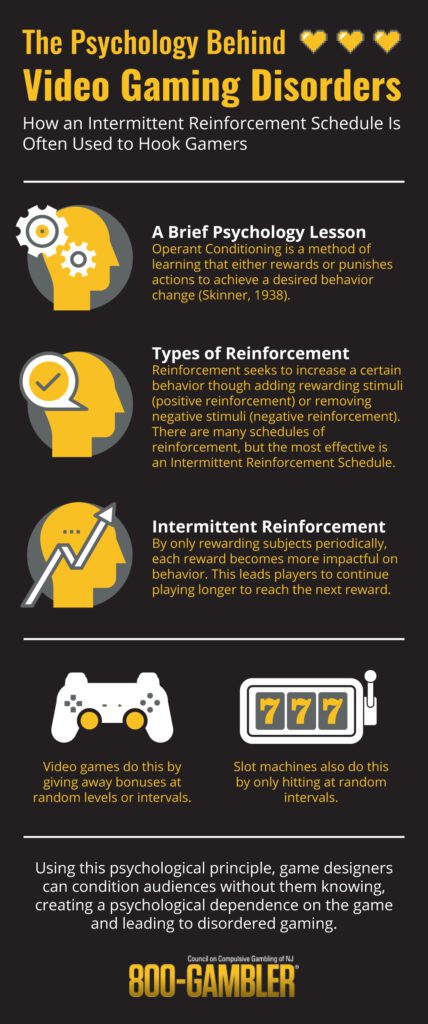Candy Crush is fun. So are thousands of other video games you can download onto your smartphone, tablet, and other devices. For many, these games are an outlet to disconnect from the monotony of daily life and can be indulging and rewarding.
Video gaming, like gambling, is not intrinsically bad or dangerous. While some have raised questions as to the impact of graphic video games on children, few have taken a strong stance against more innocent games like Candy Crush or Pokemon GO.
In a recent study published by the Journal of Gambling Studies on the potential impact of problem gaming on the likelihood of a person developing a gambling problem, there appears to be a direct relationship between the two. This means a person who has developed a gaming disorder —even with a free game like Candy Crush — will be at risk of developing a gambling problem later in life.
At the CCGNJ, we realize that not all gambling is bad and that many gamblers do not have a gambling disorder. It is worth noting, however, that a fairly consistent percentage of gamblers will develop a disorder. In this post, we’ll explain what the study on gaming and gambling behaviors tells us, and how you can use this information to protect yourself and your loved ones from disordered gambling.
Are Video Games a Gateway to Gambling?
The study, titled “Are Video Games a Gateway to Gambling?” examined a random, representative sample of over 4,600 participants ages 16-74. The purpose of the study was to explore the possibility of a relationship between problem gaming and problem gambling behaviors.
Using the Gaming Addiction Scale for Adolescents as well as the Canadian Problem Gambling Index, the researchers were able to assess the gaming and gambling behaviors of the participants. By employing a cross-lagged, autoregressive structural equation model, the team observed a positive relationship between the two, indicating that those who have developed a gaming disorder are more likely to develop a gambling disorder.
While video games may not necessarily be a gateway to gambling, they can present many of the same habit-forming qualities that can hook users and lead to a disorder. In the infographic below, you can see how video games use psychology to captivate audiences, just as gambling is known to do.

Know When to Be Cautious
Not all gaming is problematic, and not all gambling will lead to a disorder. The truth is, a vast majority of individuals play video games or gamble without it negatively impacting their lives. Unfortunately, some people are more susceptible to developing a gaming or gambling disorder than others, and not knowing the warning signs of a disorder can have drastic consequences.
If you or a loved one seems to have a gambling problem, don’t wait; call our 24/7 confidential helpline, 800-GAMBLER today.


